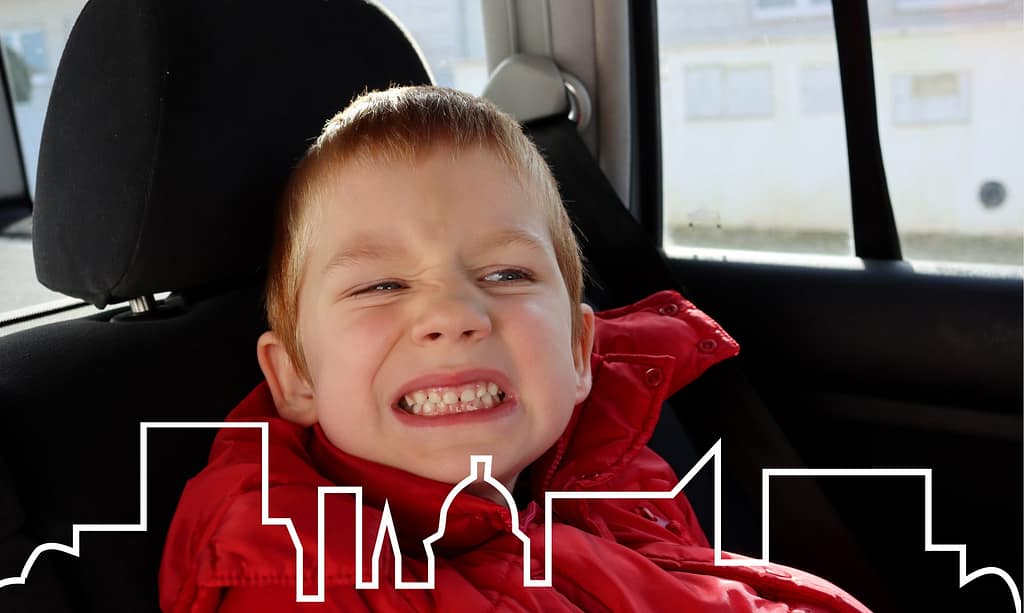4 Dangers of Bruxism in Children and What Parents Can Do

It’s natural for parents to worry when they hear their child grinding their teeth while they sleep. Though childhood teeth grinding is common, it can lead to future dental problems if left untreated. With that being said, should your child complain of a sore jaw when they wake up or chew, it may be time to consult your family dentist in Boise, Idaho about childhood bruxism.
What is childhood bruxism?
Childhood bruxism, or the act of teeth grinding and clenching, typically occurs at night when your child is asleep. Though parents will likely hear their child’s teeth grinding loudly at night, more subtle tooth clenching can occur during the day; in fact, most children will clench and grind their teeth at some point during childhood.
The peak of the habit takes place between the ages of three and six, and fortunately, many grow out of it when they reach their teenage years, and their adult teeth have all set in.
Symptoms of Bruxism
It can be challenging for a parent to know when their child is clenching or grinding their teeth. Sometimes it is very subtle, but your child may display several signs and symptoms of this condition. Parents can monitor their children for the following:
- Temporomandibular joint (TMJ) pain
- Worn down teeth
- Recurring headaches and earaches
- Trouble chewing
- Nuanced mouth movements as the child focuses on a task
- Chattering or grinding noises while sleeping
Children often don’t realize they have this habit, thus leaving it up to the parent to notice.
Problems created by teeth grinding in childhood.
It is estimated that people suffering from bruxism, be they children or adults, apply a force six times greater than average when they clench and grind their teeth, which damages the mouth and increases the risk of developing overall health and behavior problems.
Additional concerns that are often brought about by childhood bruxism are as follows:
1. Tooth Damage
Cracked and broken teeth are a leading side effect of bruxism, as the constant grinding and clenching wear down the tooth enamel, causing teeth to become sensitive to hot and cold foods. It also increases the risk of developing tooth decay and damages fillings your child may have.
2. Pain and Headaches
Clenching and grinding teeth places continuous stress and pressure on your child’s joints and muscles in the jaw, causing pain in the face, jaw, neck, ears, and shoulders, as well as stiffness. The constant strain from grinding can also cause migraine and tension headaches, and eventually, your child could develop a temporomandibular disorder (TMD) and have trouble chewing, swallowing, and talking.
3. Disrupted Sleep
Many children sleep through their constant clenching or grinding, but for some, it can be so severe that it disrupts their sleep. If your child doesn’t get adequate sleep, it can be especially challenging to wake up in the morning and may interfere with their school attendance.
4. Mental Health Disorders
Studies have shown that teeth clenchers and grinders show increased signs and symptoms of anxiety and depression more than those who do not suffer from bruxism. There are higher levels of stress hormones in their body, which causes a spike in adrenaline. Adrenaline moves energy throughout the body, even if you aren’t moving, causing people to grind their teeth as they sleep.
What can you do if your child has bruxism?
The first step to treating your child’s bruxism is to consult with their dentist to determine whether there are any other underlying issues. Other steps you can take to help your child include the following:
Have them wear a nightguard.
A nightguard is a custom-made appliance for your child’s teeth, worn at night to protect from the damage caused by nighttime clenching and grinding.
Encourage Relaxation
Stress is a trigger for bruxism, so it is crucial that you help your child relax before going to bed. Creating a nighttime routine will help prepare your child for bed and encourage them to relax. Let them take a warm bath, play relaxing music, or read a book to clear their minds of the stressors of the day. Ensure your child has comfortable bedding, including their mattress and pillow, set the temperature to something relatively cool, and remove any items that could produce distracting noise.
Address Sources of Stress
In addition to encouraging relaxation, helping your child deal with their stress can manage their bruxism as well. Talk to them about what is worrying them. It could be their grades or schoolwork, but major life changes could be taking a toll on them, too.
Discuss any upcoming changes and promote the bright side. Your child may benefit from relaxation therapies if stress is not managed through traditional outlets, like exercise and talking.
Jaw Massage
Massaging the jaw can help relax facial muscles and prevent teeth grinding. Do so by placing your fingertips on your child’s face and have them clench their teeth to locate the muscle, then use circular motions to massage the area gently.
Address your concerns about your child’s teeth grinding habits.
If you suspect your child has bruxism, visit or contact Staley Dental today to schedule a pediatric dentistry consultation. We’ll address your concerns and protect your child’s teeth.